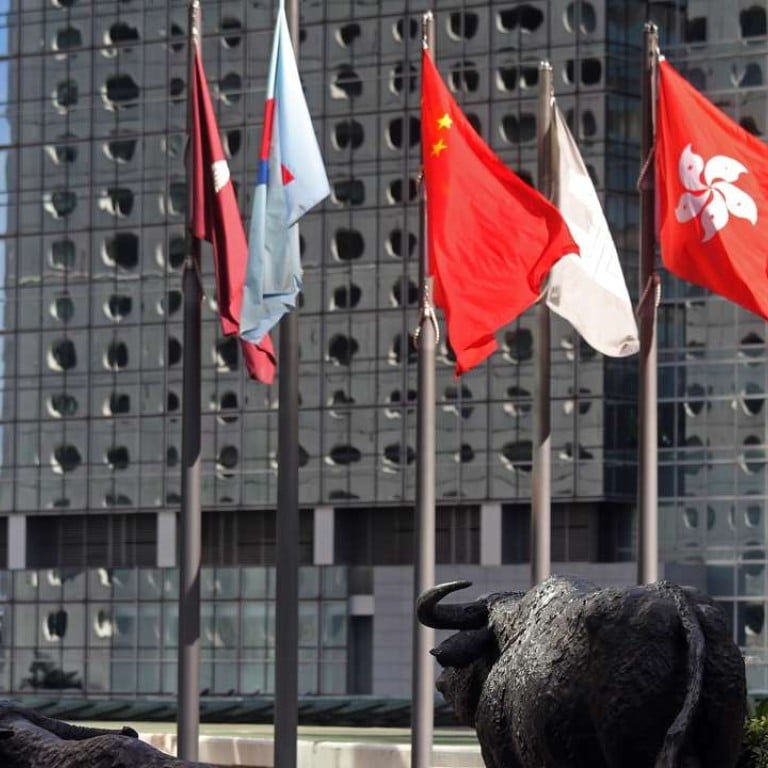
Pain of Alibaba loss prompts HKEX to examine new measures
Hong Kong’s tech start-ups are put off listing locally by bourse’s strict entry barriers and ban of dual-share structures
A new board is among the measures Hong Kong Exchanges and Clearing (HKEX) will consider in its bid to lure more technology start-ups to list on the city’s bourse, chief executive Charles Li Xiaojia said on Thursday.
Of the 343 companies to list in Hong Kong between 2010 and 2013, only 22, or 6 per cent of the total, were technology related, according to HKEX.
Many observers believe Hong Kong’s stock exchange has missed out on billions in annual listing and trading fees due to its refusal to introduce a dual-shares structure on the grounds that it would violate the long-held principle of “one share, one vote”.
Dual-share structures, which allow shares with unequal voting rights to be listed, are popular with technology firms, including Facebook and Google.
Debate had raged for years on the issue, but the topic was thrust into the spotlight two years ago when Chinese e-commerce juggernaut Alibaba Group, which has a dual-class structure, opted to list its shares in New York in what became the largest IPO in history.
Losing out on a listing by Alibaba, which owns the South China Morning Post, has been costly for the Hong kong exchange, financially and in terms of market development.
On Thursday, turnover of Alibaba shares was US$2.75 billion (HK$21.43 billion) - equivalent to almost a third of total Hong Kong stock market turnover of HK$65 billion on the same day. HKEX’s turnover would get a significant boost from the increased trading fees, while brokers would benefit from higher commission income from these trades.
Alibaba raised a record-breaking US$25 billion from its IPO in the US in 2014. Its decision to choose New York meant Hong Kong lost out that year as the world’s largest IPO market. HKEX also missed out on an initial listing fee of HK$650,000 and an annual listing fee of HK$1.19 million.
No doubt these are among the factors that have prompted HKEX to examine ways of lowering the entry barriers for new tech companies wishing to float their stock here.

His comments came as regional competition among bourses looking to attract a new generation of technology start-ups intensified.
The Singapore Exchange (SGX) on Monday won approval from its listing advisory committee to allow companies to list dual-shares structures, favoured by many start-ups as many of their founders hold only small stakes but want to keep control.
It may be a necessary measure for Singapore’s bourse, which has attracted few IPOs in recent years, but some analysts point out that the move is risky as up to 90 per cent of start-ups fail.
But the US market has shown such structures can attract big tech players to list. The top 25 dual-share structure companies including Facebook, Google and LikedIn in the US have a combined market cap of US$927.42 billion.
Of the 30 mainland Chinese companies, such as Baidu and Weibo, listed in the US, 29 of them have dual-class structures. Baidu’s founder, for example, has only a 15.9 per cent stake in the company but has a voting right of 53.5 per cent.
We will study whether we should have a new board or adopt a new disclosure regime for the new start-ups to list here
Alibaba had wanted to list in Hong Kong in 2013 with a structure that would have allowed founder Jack Ma and key executives to nominate half of the board, but the dual-share arrangement has been banned in Hong Kong since the 1980s.
HKEX in 2014 began consulting the market about the possibility of permitting dual-share structures here, but the exercise ground to a halt when the SFC opposed the idea, fearing it would undermine investor protection.
The city is not lacking start-ups. They just choose not to raise funds through HKEX.
A 2015 survey by InvestHK reported a 46 per cent increase in the total number of start-ups to 1,558 compared with 1,065 in 2014. Hong Kong is now home to more than 10 accelerator and incubation programmes, ranging in scope from financial technology to healthcare, run by large corporations including Accenture and Standard Chartered.
The main board’s requirement for HK$50 million in profit in the three years ahead of a listing is considered to be too high for start-ups, as is the Growth Enterprise Market’s stipulation of a cash flow of HK$20 million in the previous two years of operation.
Jack Ma told University of Macau students in June that he “very much hopes” to list Ant Financial Services, the operator of Alipay, in Hong Kong.

